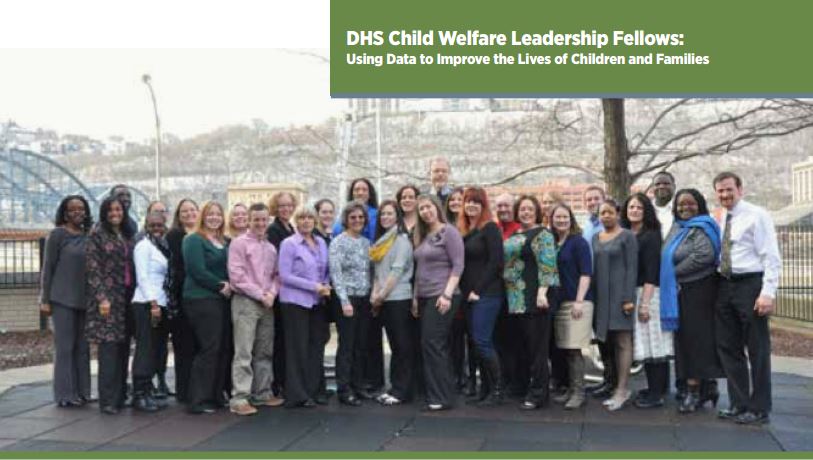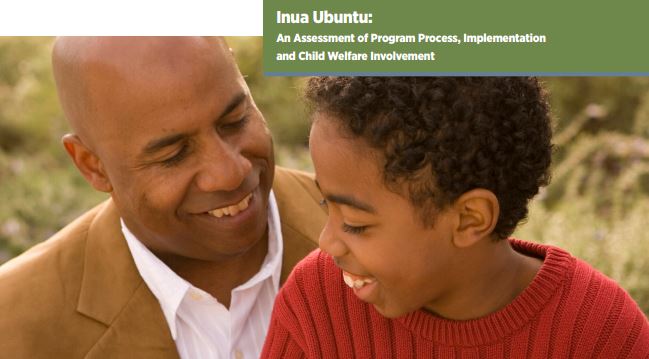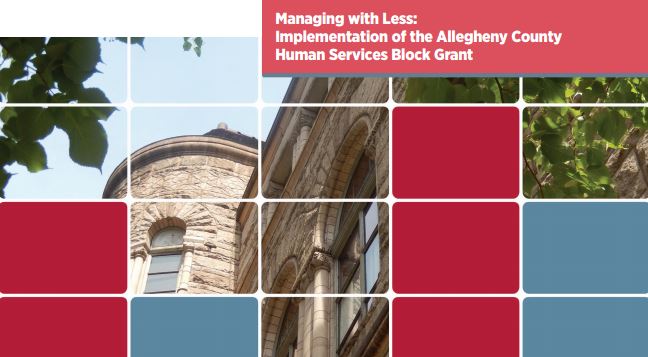The Allegheny County Department of Human Services (DHS), in partnership with the United Way of Southwestern Pennsylvania, has been offering free tax preparation in several locations throughout the County since 2011. Thirteen trained volunteers helped 343 clients in need prepare returns last year. Collectively, these clients received a total federal refund of $519,645, at no cost to them. This brief includes demographic information about the taxpayers who received DHS tax assistance services and the overall results of the 2017 program.
Allegheny County, like much of Western Pennsylvania, is in the midst of an opioid overdose epidemic and it is vitally important that County residents have access to the best and most effective treatment to support their recovery from opioid use disorders. Medication-assisted treatment, or MAT, combines medication and counseling/behavioral therapy and, when clinically appropriate, is a standard of care in the treatment of opioid use disorders. Research has proven MAT to be highly effective in improving recovery outcomes and reducing criminal behavior and risk of infectious disease.
The Allegheny County Departments of Health and Human Services, together with Allegheny HealthChoices, Inc. and Community Care Behavioral Health, issued a Joint Position Statement on Medication-Assisted Treatment for Opioid Use Disorders in Allegheny County, describing their expectations for contracted treatment providers and others who encounter or serve individuals with opioid use disorders. It states that every person entering substance use treatment for opioid use is entitled to the opportunity to learn about and consider MAT as a treatment option. It is intended to dispel ambiguity and should be understood as a clear statement in support of an effective treatment continuum that includes MAT.

Receiving more than 3,000 calls annually, the Allegheny County Department of Human Services (DHS) Director’s Action Line (DAL) is an effective mechanism through which clients and other community members can resolve issues and get information about DHS services. It is also an important feedback tool for DHS, providing information about client experiences and perceptions of the services they receive. An evaluation was conducted of both of these functions, and the findings led to valuable insights and recommendations for improving outreach and follow-up.
Creating an integrated Department of Human Services in 1997 was a herculean task. It involved combining four formerly-separate departments, geographically dispersed and structured in very different ways. Administratively, technologically, fiscally and culturally, each had functioned autonomously for decades. A strategic set of engagement and communication efforts were key to the community buy-in and support that led to the successful integration of the department.

Twenty-seven child welfare professionals participated in the first year of the Leadership Fellows program, learning how to use data to 1) identify issues that negatively impact children and families in the child welfare system and 2) make recommendations to address those issues. The fellows focused on teenage girls in out-of-home placement and recommended strategies to reduce home removal and – in situations where placement was necessary – to improve the placement experience. In addition to addressing system issues, the program served as a professional development experience for the fellows and resulted in improved career opportunities for many.
Click here to view the full report.
Content and analysis: Brian Bell and the 2014 Child Welfare Leadership Fellows
Writer: Susan Gove

Linking provider payments to performance measures is gaining popularity as a way to improve outcomes, efficiency and innovations. Three performance-based contracting models have been implemented in Allegheny County, targeting: 1) the Senior Center network; 2) child welfare providers; and 3) DHS-funded providers of the Allegheny County Jail Collaborative. Each focuses on service-related outcomes and offers fiscal incentives for improvement.

Inua Ubuntu, designed to provide culturally-based intervention with a goal of reducing the rate of out-of-home placement for African American males, was implemented by the Allegheny County Department of Human Services in 2010. The program is based on an African-centric concept of family and community, and is driven by the theory that services are most effective when delivered by those who understand – and are a part of – the family’s culture and community.

An initial assessment is often a client’s first service experience, and, as such, it plays a major role in the perception, comfort and outcomes of the service. Simultaneously, the assessment can set the tone for the eventual outcomes of the This report describes the process of adapting and/or developing common assessments for use in Allegheny County, the implementation process, and the impact on consumer engagement and service delivery.

Fiscal Year 2012/2013 saw the implementation of the Human Services Block Grant in Allegheny County, which combined a 10 percent decrease in funding from the Pennsylvania Department of Public Welfare (now the Pennsylvania Department of Human Services) with greater flexibility in how those funds could be spent. The local planning process included community involvement and an innovative Call for Concepts process.
The Brief Wraparound Residential model emphasizes working with youth on what they need to be successful following their stay in residential care; that is, at home, in school and in the community. It involves immediate engagement with the youth and family and is designed to support reunification and successful re-entry into the home and community. This report describes the model as well as lessons learned and challenges to full implementation.
Natural supports are those family members, friends and community members who enhance our lives and support us in achieving our goals. The use of natural supports is becoming more common in association with human services, and DHS actively promotes the identification of natural supports and their involvement with individuals and families involved in a variety of services. A department-wide survey and individual interviews were conducted to assess staff’s awareness of the importance of natural supports and understand their utilization across DHS.
In 2007, DHS established an Immigrant and International Advisory Council, seeking to ensure that its services were culturally competent and accessible. Since that time, the Council is credited by many with making the region more immigrant-friendly. Beginning with two specific goals – cultural competence training and improving access to translation and interpretation services – the Council has grown and expanded its reach. This report traces the history of the Council and its accomplishments.
To commemorate 50 years during which Allegheny County government has been responsible for providing public child welfare services, DHS commissioned this historical overview of child welfare in the county.
Click here to view the full report.
Related:
The Next Page: Bold ideas behind Pittsburgh’s first child-welfare system – Meet the heroines
Pittsburgh Post-Gazette, January 4, 2014
Since 2008, when a report on Quality Improvement activities across DHS was published, an enhanced quality improvement process has been in place for the delivery of direct services at DHS. The primary focus on these efforts have been in child welfare; activities range from a Quality Service Review process to Child Fatality and Near-Fatality reviews. An overview of these activities, and their outcomes, is provided in this report.
In 2008, the Allegheny County Department of Human Services hired four Youth Support Partners (YSP), young adults with lived experiences in human services, to serve as positive role models and peer supports for young people involved in the system. From that beginning, the Youth Support Partners program has expanded to include a manager, four supervisors and 15 YSPs. The YSPs have developed effective relationships with the youth while earning the respect of colleagues and others involved in the lives of the youth (e.g., judges, caseworkers and providers).
